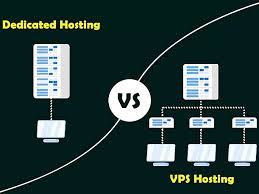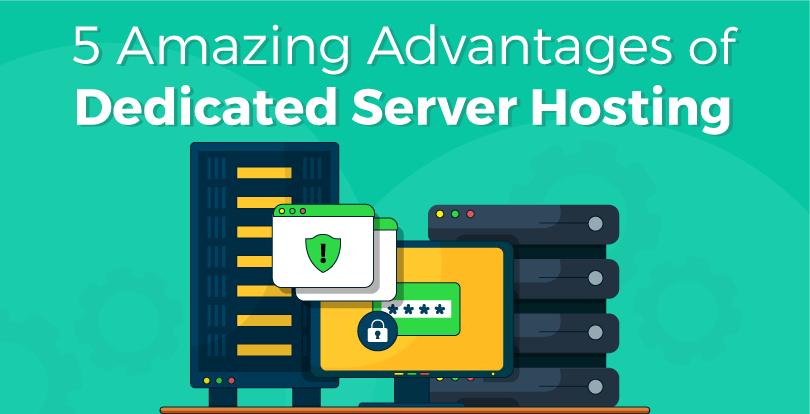What is Dedicated Server Hosting

Dedicated server hosting is a type of web hosting service where an entire physical server is leased to a single client or organization. In this hosting arrangement, the client has exclusive access to all the resources and capabilities of the dedicated server. Unlike shared hosting, where multiple users share the same server resources, The provides unparalleled control, customization, and performance for the hosting client.
Table of Contents
What are the difference between dedicated Hosting and VPS Hosting

Dedicated hosting and Virtual Private Server (VPS) hosting are both types of hosting solutions, but they differ in several key aspects. Here are the main differences between dedicated hosting and VPS hosting:
- Resource Allocation:
- Dedicated Hosting: In dedicated hosting, an entire physical server is allocated to a single client. All server resources, including CPU, RAM, storage, and bandwidth, are exclusively dedicated to that client.
- VPS Hosting: VPS hosting involves virtualization, where a physical server is divided into multiple virtual servers. Each VPS has its own allocated resources, and while they share the same physical hardware, they operate independently.
- Isolation:
- Dedicated Hosting: Offers complete isolation since the client has exclusive use of the entire server. This isolation ensures that the client’s performance is not affected by the activities of other users.
- VPS Hosting: Provides a high level of isolation at the virtualization level. Each VPS operates as an independent server, and the actions of one VPS do not directly impact the performance of others. However, there is still some level of resource sharing at the physical server level.
- Customization and Control:
- Dedicated Hosting: Provides full control and customization over the server’s configuration. Clients can choose the operating system, install software, and make extensive configurations.
- VPS Hosting: Offers a good level of control and customization, but it may be more restricted compared to dedicated hosting. Clients can typically customize their VPS environment, but there may be limitations imposed by the virtualization technology.
- Performance:
- Dedicated Hosting: Generally offers better and more consistent performance because all server resources are dedicated to a single client. There is no contention for resources with other users.
- VPS Hosting: Provides good performance, but the overall performance can be influenced by the activities of other VPSs on the same physical server. Performance may vary depending on the specific VPS hosting plan and provider.
- Scalability:
- Dedicated Hosting: Scalability is often achieved by upgrading hardware components, which may involve downtime. It is typically not as flexible in terms of rapid scaling compared to VPS hosting.
- VPS Hosting: Offers more flexibility in terms of scaling. Resources can be easily allocated or de-allocated based on the client’s needs without significant downtime.
5 amazing advantages of Dedicated Server Hosting

Unmatched Performance
- The hosting provides exclusive access to the entire physical server. With no sharing of resources with other users, you get dedicated CPU, RAM, storage, and bandwidth. This results in consistently high performance, making it an ideal choice for resource-intensive applications and high-traffic websites.
Complete Control and Customization
- Clients have full control over the server’s configuration. They can choose the operating system, install specific software, and configure settings based on their unique requirements. This level of customization allows for optimal performance and security tailored to the needs of the hosted applications.
Enhanced Security
- Security is a significant advantage of dedicated hosting. With no other users sharing the server, the risk of security vulnerabilities from neighboring accounts is minimized. Clients can implement robust security measures, including firewalls and access controls, to fortify their server against potential threats.
Reliability and Uptime
- The hosting providers often guarantee high levels of uptime. Since resources are not shared, there is less risk of performance issues stemming from the activities of other accounts on the same server. This reliability is crucial for businesses that require continuous online availability.
Scalability and Flexibility
- Dedicated hosting offers scalability by allowing clients to upgrade hardware components or adjust configurations based on changing needs. While upgrades may involve some downtime, the flexibility to scale resources makes dedicated hosting suitable for growing businesses with evolving hosting requirements.
Who Needs Dedicated Hosting?

If you own or manage any of the types of businesses below, you may need a dedicated server.
The types of organizations that can benefit from dedicated hosting are:
- Midsize to large companies with 500+ employees that manage large amounts of data. If your business contains databases, large inventory/supply chain infrastructure, and hundreds of ecommerce transactions hourly, you need a dedicated server.
- System administrators, developers, and information technology businesses that need to customize their server environment to their specifications and run resource-intensive web applications, such as content management systems, custom software, API-driven applications, software as a service, and ecommerce sites need dedicated servers.
- Agencies and web hosting resellers need dedicated servers to host their clients’ websites. A dedicated server allows them to manage their clients in one place without needing to manage multiple hosting accounts on various providers.
You Want to Buy a Best Dedicated Server Hosting: Dedicated Server Hosting
